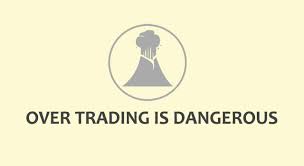Over trading
There are usually two situations which
can create temptation for overtrading:
a. Your business idea has kickstarted
well with more than expected reception from the market. Though you
have limited resources in working capital, and human resources, and
infrastructure you are already mothful and more orders have to be
addressed. Your marketing efforts are paying off extremely well, your
creditors seems to be happy with you and have indicated tosuppor to
your rapidly growing business. Your team is bubbling with enthusiasm.
b. You have been in business
successfully for quite sometime. Earned your place through sheer
hardwork, built a loyal team, supply chain, loyal customers, with a
growth rate at par or slightly higher than the market growth. At this
point you decide to triple your turnover. With the new found
aggression your team is successful in converting your vision into
orders.
Generally, overtrading happens in
startups and fast expanding businesses. The most interesting fact is
that those who practice overtrading do not even realise that they
indulge into it, till such time the problem of overtrading snowballs.
The primary risk in overtrading is
credits: Credit extended to the customer and the credit enjoyed from
the vendors and suppliers. Most start ups and growing businesses have
limited capital or reserves to handle the catastrophe due to
unforeseen developments leading to crisis. These situations develop
due to bad debts, delayed payments leading to higher financial
overheads, gap between the inward and outward credit periods, etc.
One more risk in overtrading is
resources. As long as the order books donot exceed the limits of the
installed capacity in the case of manufacturing units, and the
available or hireable resources in the service sector, the situation
is manageable.
Even if new human resources are hired, to train the less experienced or to tune the newly hired but trained
hands to the new business environment will be most demanding and time consuming.
Resources that need to be in place for phenominal growth include skilled and trained
human resource, availability of raw materials, timely delivery by
vendors, infrastructure like space, machineries, power, monitoring sytems and management etc.
Biting more than what can be chewed can
lead to dissatisfaction of the customers both new and existing,
exerting a lot of strain to all the departments leading to drop in
overall quality and efficiency.
The greatest of all resources is time,
which gets reduced in in each delivery irrespective of the product or
service, possibly leading to poorer quality or post sale support.
It is paramount to take stock of cash
and other resources, availability and manageability of all of them
periodically, which will ensure that the business is not put into
serious trouble with possible overtrading.
Growth is one of the most important
aspects of business sustance, but not at the cost of the very purpose
of it.



Comments
Post a Comment